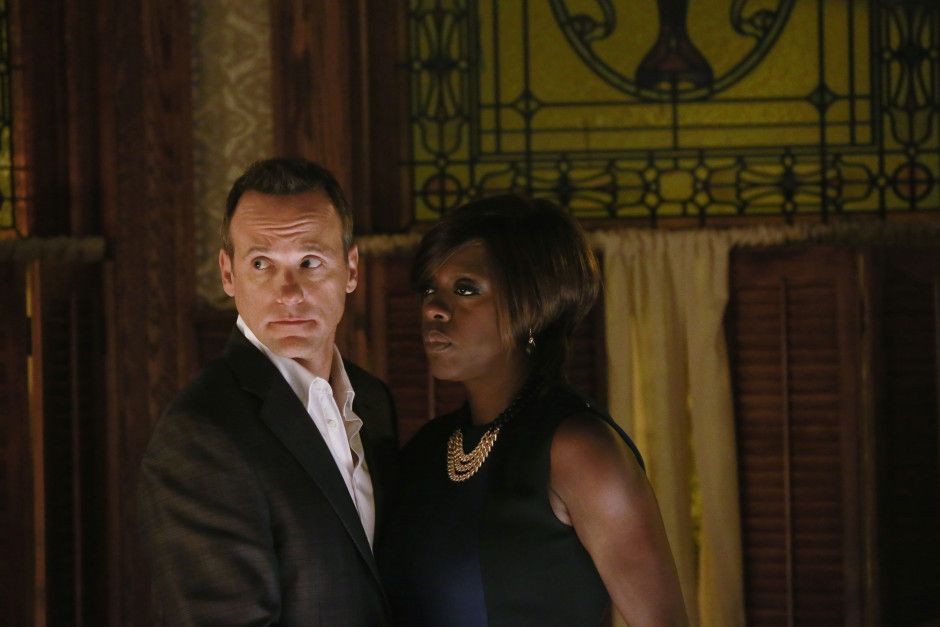The Last Taboo: Black Women with White Men on the Small Screen

by Gina Torres
Scandal is arguably one of the best dramatic shows currently on television. It is also one of the most groundbreaking TV shows because its African-American female lead, Kerry Washington’s character, Olivia Pope, is neither streetwalker nor drug addict. Pope is educated, glamorous, and the owner a successful company. She is a sought-out expert in her field. However, like most of us, she is flawed. She is in love with a married man, who also happens to be the President of the United States. And he is white.
Many African-American men vehemently oppose her involvement with a white man. And for the past two seasons she has been in a love triangle involving not one but two white men. I have read blog after blog, article after article, and had conversation after conversation about this topic. It generally leaves me angry and frustrated. It mirrors a greater issue within our community concerning black women involved in relationships with non-black men. And some of the most vocal offenders are the same men that prefer women of different ethnicities. A friend of mine was called the “b-word” by a black man, when she was out with her Caucasian boyfriend. Ironically the man was hugged up with a Caucasian woman when he said it.
Many Black men refuse to recognize this. They zero in on the affair and often refer to Olivia Pope as a white man’s whore. This is then followed up with some comment about how women never support cheating any other time, but we cheer for the mistress in this instance. They also don’t acknowledge that we cheer because her story is dramatic fiction. Essentially the characters are star-crossed lovers in an impossible situation, and that dynamic is a classic element in fiction.
How to Get Away with Murder has garnered the same level of criticism of Viola Davis’s character, Annalise Keating. She is married to a white man, and is having an affair with a black man. Unfortunately the residual effect of our history makes some of us intensely uncomfortable with interracial couples. It is still far more common to see black men with women of other cultures than it is to see black women with non-black partners. Given the tendency for successful black men to worship at the temple of the ‘cult of blonde beauty,’ why is it so reproachable for us to choose non-black partners as well? It seems as though black men can fully and freely have relationships with whomever they want, and “race” is not a barrier. Why should black women be denied the same freedom?
Some black women are hurt about black men dating white women. It has been drilled into our heads that only a black man can love us and understand our struggle. We were taught that White men specifically aren’t generally attracted to us, and if they are it is just as a sexual curiosity. So if less black men are available where does that leave us? Mainstream culture has mostly portrayed us as peripheral characters—sassy mammys, magical negresses, and, more recently, asexual best friends. We have never been the main love interest. Until now.
As much as we don’t like to admit that we are impacted by what we see, Fitz and Olivia’s chemistry on screen awakens something within us. Despite their complex situation, fans of the show know that Fitz desperately loves Olivia, and this is what attracts us to the show. It’s refreshing to see a man so in love with a black woman, that he would do anything for her. It’s not so much about the fact that he’s a white man; it’s about the fact that we rarely see men of any race show this kind of devotion and deference to a black woman on TV.
We understand that Scandal and How to Get Away with Murder are fiction. We understand that Olivia and Annalise do not represent all black women—anymore than any other fictional character is a total representation of their racial or cultural group. However, these characters do represent an important change in how black women are viewed on TV. Olivia and Annalise are educated, powerful, and in control of their sexuality. They are the complete opposite of how black women have historically been portrayed.
Rather than bemoaning the fact that these black characters are involved with white men, let us celebrate the fact that Olivia and Annalise are leading black female characters on network television that defy stereotypes.
It’s about time.
Photo Credit: ABC
Gina Torres is a Facebook addicted-arm chair psychologist- political commenting-often militant-pop culture junkie blogger. She also happens to be a voracious reader, often reading several novels in a week. She loves the written word and the subtle, or not so subtle, turn of a phrase. Gina is a wry observer and humorist whose greatest joy is to make people ugly laugh. She has been a freelance writer for many years, writing copy, articles, web content, and for political campaigns.

No comments: